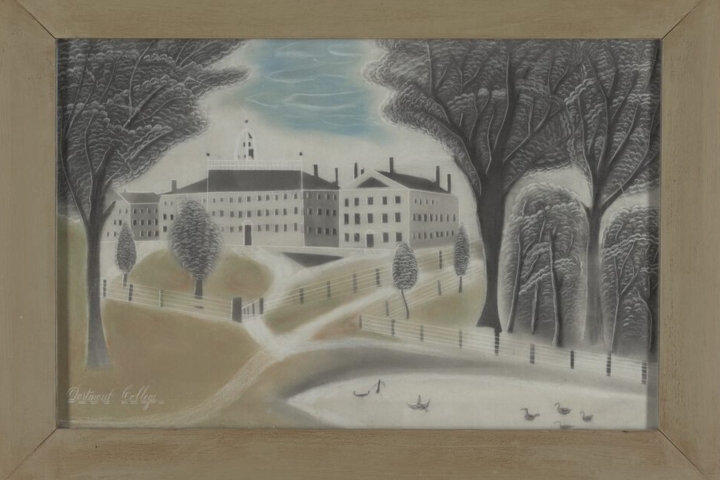Four decades before the Civil War, following stints as a sailor and a porter, a 32-year-old emigrant from Martinique became the first person of African descent to enter Dartmouth, making it the first college in what later became the Ivy League to enroll a Black student.
On Sept. 30, Dartmouth Libraries will honor this Class of 1828 trailblazer with a daylong celebration, Edward Mitchell, An Extraordinary LIfe.
Visitors may view materials related to Mitchell at Rauner Special Collections Library and take a tour of Digital by Dartmouth Libraries, where the Mitchell collection—85 items in total, including letters, schoolwork, essays, and sermons—has been digitized and transcribed.
A 10:15 a.m. panel discussion in The LINK, aka Berry 180, also available via Zoom, will feature Mitchell’s biographer, Forrester “Woody” Lee ’68, and Cheryl Bascomb ’82, vice president for alumni relations, who will speak about Mitchell’s legacy.
As historian for the Black Alumni at Dartmouth Association, Lee began researching Mitchell’s life in 2013 while on sabbatical from his position as professor of cardiology at Yale School of Medicine.
Co-authored by James Pringle ’58, A Noble and Independent Course: The Life of the Reverend Edward Mitchell traces the circuitous journey Mitchell took to Hanover, beginning with his emigration from the West Indies to Portland, Maine, where he became a seafarer. Nearly losing his life at sea, he thanked God for his salvation, moved to Philadelphia, and embraced evangelical Christianity.
That’s where Mitchell crossed paths with Francis Brown, president of Dartmouth from 1815 to 1820. Traveling through Pennsylvania, Brown and his wife needed someone to drive their carriage to Hanover. Mitchell obliged, and became so close to the family that he moved into their home. When he was proposed by local Baptist clergy for admission to Dartmouth, the Board of Trustees declined. But students convinced them to reverse course.
“It was absolutely unheard of then for a man of color to have an opportunity to attend a university,” says Lee. “It’s deeply personal for me, almost like telling a family story, because he’s one of us. There’s a certain amount of pride that Dartmouth was able to do this when most other schools put up obstructions.”
After graduation, Mitchell was ordained as a Baptist minister, eventually settling in Georgeville, Canada, in 1837. Most of his papers have been archived at Montreal’s McCord Stewart Museum, which is providing them to Dartmouth via a digital exchange of materials. McCord Stewart’s textual archives curator Mathieu Lapointe, who will also be a panelist, says Mitchell was likely one of the first college-educated men of African descent to have lived in Canada, certainly in the province of Quebec, then known as Lower Canada.
“Mitchell’s life speaks of the transformative power of education in any person’s life, but probably even more so for members of marginalized groups of society,” says Lapointe. “He wrote an interesting composition while at Dartmouth, with a Latin title meaning ‘without knowing what happened before you were born, you will always be a child,’ a quote from Cicero.”
In that same document, Mitchell writes, “The knowledge of history enlarges the powers of the mind; for it prepares them for more active exertions, and nobler pursuits.”
A Dartmouth education did not merely raise Mitchell’s social status, says Lapointe.
“Studying the classics and history deepened his perspective on life and humankind, which later helped him be recognized as a wise, knowledgeable, and prudent man, one who inspired fellow community members and could even arbitrate their conflicts, as some of his later papers show,” Lapointe says.
The transcriptions of the documents in the digital collection was overseen by Samara Cary, digital project specialist for Digital by Dartmouth Libraries. She says reading Mitchell’s manuscripts has brought “pleasant surprises” about how early New Englanders treated people of color. At the same time, she notes, Mitchell’s path to success was not always smooth.
“Dartmouth has a commitment to looking into its past and being accountable,” says Cary, who will also be a panelist. “It’s so important to continue uncovering these stories and highlighting people in its history.”
In 2022, one of Dartmouth’s 10 new Trailblazer scholarships was named for Mitchell.
The Sept. 30 commemoration is free and open to the public, but spaces for some events are limited, and reservations are advised.
